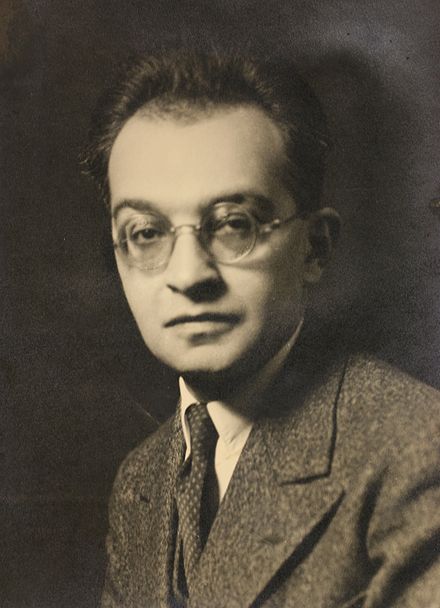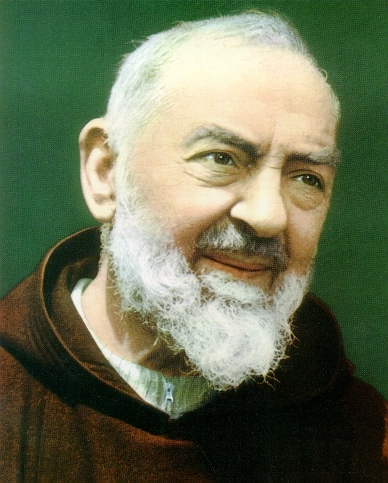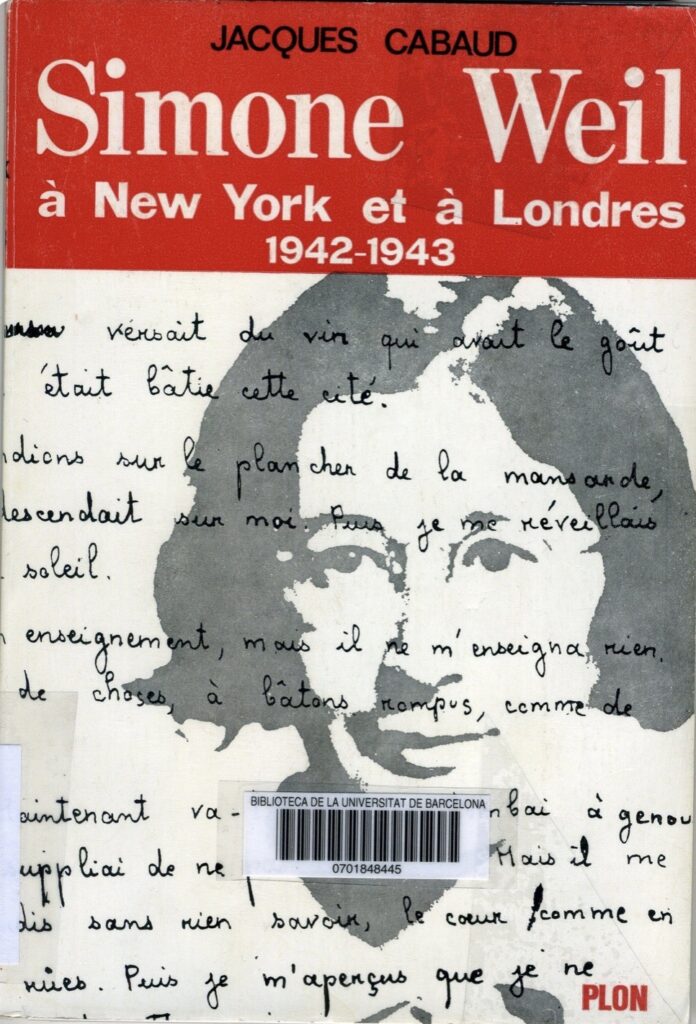Choices are Made in Heaven (or How my Work on Weil Began)
Jacques CabaudChoices are made in Heaven . . . or so it seems when such commitments are made that lead to the choice of one’s spouse or that of a doctoral topic. I was a doctoral candidate in French Literature at Columbia in 1950. If I was going to spend years on a project, I wanted it at least to be a congenial one. Blaise Pascal (1623-1662), the incomparable stylist of the Provinciales, the great Christian apologist of the Pensées, fascinated me. There are astonishing thematic similarities between him and Shakespeare because they had both read Montaigne’s Essays: “What a piece of work is man?” (“Quelle chimère est-ce donc que l’homme?”). I thought Pascal, the Mystic would be a good subject. The only drawback was that the bibliography on Pascal in French Literature was second to none in size, except that of the playwright Molière (Voltaire comes as number three in this respect).

I could tell you tragic stories of would-be scholars who got drowned in secondary literature and were never heard of again (their souls are probably haunting the Library of Congress today!). Nonetheless, I went to Paris with Pascal in mind. I even bought the weighty folio facsimile edition of his manuscript of the Pensées. And then I happened to fall upon a book review by André Rousseau in Le Figaro on the posthumous publication of L’Attente de Dieu (Waiting on God) by Simone Weil. This was a discovery for me. The philosophical and spiritual depth of perception in one who had died so young bowled me over. Secondary literature on Simone Weil at this stage was insignificant in terms of quantity and quality. If I investigated her life at a time when the memory of those who had known her was still fresh, I would be collecting material that would prove irreplaceable in the future.
Meeting the Weil Family
The first source of information, of course, would be her immediate family. Her parents, after moving to the States in 1942, had returned to the apartment they used to live in Paris until 1940, with its splendid panoramic view of Paris from the Pantheon to the Eiffel Tower, and the Jardin du Luxembourg in the foreground. You will find this view on the inside of the book cover of my biography of Simone Weil in the English version. Getting to meet the parents was as easy as making a phone call. Madame Weil, who was then 71, enjoyed receiving visitors who were interested in her daughter’s works, especially if they were students. I was glad to hear her say that no one was writing about Simone’s life.
Someone had recently shown interest in doing so but had given up. I went to see that person. He had wanted to take advantage of the curiosity aroused by the discovery of this fascinating posthumous author. But then he had decided against this project because he feared Simone’s parents might be touchy and curtail his freedom at writing whatever he felt about their daughter. This was not a moot question, because they had already broken off all relations with Père Perrin over a rather innocuous critical remark he had made on Simone in the preface of his edition of Attente de Dieu.
Madame Salomea Weil, some might think, conformed to the picture of the typical Jewish mother. What I noticed, however, was the warmth with which she greeted me whenever I went to see her. Then she would start reminiscing about the past. These were precious moments. But she would not allow me to jot down what she said. Since I do not enjoy perfect recall, this was troublesome. This does not mean I do not remain grateful for her help. On the contrary. She allowed me to use the family photos of Simone which are to be found in my book. She even gave me a manuscript page of her daughter. I could copy passages from as-yet-unpublished manuscripts. Behind my back, she had nicknamed me “the detective”, since I had managed twice, like a private eye in a movie, to gain access to records closed in archives for fifty years. I would keep her posted on whatever progress I made in my search for articles about Simone or mentions of Simone in less well-known publications at the Bibliothèque Nationale. Not that I made any extraordinary discoveries there, since, through Simone’s past acquaintances in the trade unions, these publications were not too difficult to find.
Madame Weil was even more interested in my reports on the people whom I had met. In one case, however, I regretted afterward that I had not kept to myself what Father Perrin had told me. For she and her husband misunderstood my report and had the impression this blind priest might intend to publish on his own the Letter to Père Couturier, better known as Lettre à un religieux. This led to their rushing to publish this text before he could do so. This short, controversial document thus trust in the limelight acquired a significance it did not deserve on its own. Many people who commented on it, neglecting the hypothetical character of many of the utterances of Simone, saw it as a fire-brand pamphlet against the Catholic Church. This is really a misuse of the author’s original intention.

By the way, the same misreading occurred, when Gustave Thibon published in Gravity and Grace the passages from Simone’s notebooks concerning Israel. These were notes Simone Weil had made for her own use, private musings, and should not be interpreted as definitive formulations. People who forget this tend to accuse Simone Weil of being antisemitic. That she was anti-Judaic is manifest in what she was writing in her essays meant for publication. But an antisemite would not confide, as she did to Thibon, that one of her reasons for remaining outside of the Church was that she did not want “to seem to be separating herself from the Jewish community”.
“Famous People” — Others Who Knew or Knew of Weil

My research led me to meet many famous people. For instance, Maurice Schumann invited me to come to see him at the Quai d’Orsay. I was led by an usher into a huge room to a seat in front of the Foreign Minister. Once the interview was over, I made the mistake of getting up and walking on my own to the door at the other far end, instead of waiting for the usher to come and fetch me, as Schumann pointed out to me at a subsequent interview.
Raymond Aron, the sociologist, political thinker, and Sartre’s most-famous critic, asked me to come to his flat at eight in the evening. Madame Aron had been a friend of Simone in the thirties. When I got there, the Arons told me regretfully that, after thinking things over, they had decided not to tell me anything. By the way, he did all the speaking. I felt so frustrated that I ensconced myself in my “fauteuil” and exchanged banalities with him for half an hour before taking a belated leave. This was the only “non sequitur” interview I had of the approximately 150 I made. I immediately suspected, of course, as was later to be revealed, that Madame Aron had been privy to some crush of Simone. I had not guessed at this point that it was Boris Souvarine, the ex-secretary of the French Communist Party and biographer of Stalin who had been the object of Simone’s platonic longing. It must have been the second unspoken platonic attachment of her life.

When I met Souvarine, he did not go into this aspect of things; anyway, Simone Weil was not in the habit of telling the interested party what her feelings for him were. He was rather reserved, however, as if he had intended, as a historian in his own right, to make use at some later time of most of what he knew. As an addendum, may I mention that twenty years later, he was responsible for the fact that I found myself in Paris to meet him as my wife was giving birth, slightly prematurely, to our only child in New York. Once again, however, I did not learn much from him. Boris Souvarine died before he got around to writing what he had intended about Simone.
Of all the students of Simone that I met, those of Le Puy were probably the fondest of their teacher, perhaps because she was attacked by the press for stirring up the unemployed workers against the Townhall. She had thought they were being underpaid for the relief work they had been given. As someone remarked humorously:
“This is typical of Simone. She succeeded in convincing the unemployed to go on strike.”

Some of the personalities I encountered would have been well worth getting acquainted with in their own right. There was Albert Camus, for instance, who had a noticeably fast mind. He used to enjoy talking with Madame Weil. When he received the Nobel Prize, he went to see her and asked if he could spend some time in Simone’s room. He remained there for half an hour alone, as if he owed it, now that he himself was heaped with honors, to render this homage to true greatness. Then there was Gustave Thibon, whose mental alertness reminded me of Camus’. Not to forget Père Perrin, the first man to be ordained priest in spite of his blindness. One of the joys of his later life was to learn that his one-time protégée had been baptized before her death by Simone Deitz.
Simone Deitz & the Baptism Story
Simone Deitz is one of the most perplexing figures I came across. She took the initiative of contacting me in New York and told me many interesting things about Simone. She did not share with me, however, the above-mentioned piece of information (about the baptism). I suspect she was waiting for Madame Weil’s death before she made it known. I heard about it, however, from three people living in Quebec whom I went to see. Then, one day, I happened to encounter Simone Deitz in the subway. Without as much as a preamble, I asked her:
“When did you baptize Simone Weil? Was it at the Middlesex Hospital in London, or at the Sanatorium?”
Her answer was: “I do not remember.”
“How is that possible?” I queried.
She replied: “These were such hectic times, I don’t know.”
What was gratifying in the contacts I made, as I went around on my “vélomoteur” (motorized bicycle) at Le Puy, Auxerre, Roanne, and Bourges, and met all those people, is that I had the impression of discovering varied aspects of an extraordinary personality. The emotion with which a miner of St Etienne would speak of “la Simone!” Or the indignant tone in which the headmistress of the Girl’s Lycée at Auxerre would recall the totally unconventional modus operandi of her teacher. Or the warmth with which trade-union leaders Thévenon or Duperray would evoke their discussions with their young friend. Sometimes I would learn as much about my interviewee as about Simone, for instance, when Georges Bataille, famous for his studies on the Marquis de Sade, mentioned the “pornographic masterpiece” he had lent to Simone, which did not seem to shock her.

What makes this answer all the more intriguing is that in later years, as I was poring over the papers Simone left after her death at the Bibliothèque Nationale, I came across a note which is obviously an allusion to Simone Deitz: “She [Deitz] wrote to Padre Pio [today’s Saint Padre Pio] that she was worried about her friend’s eternal fate. Padre Pio had one of the brothers transmit this answer: ‘Do not worry about your friend: “E una sancta”. One can trust Saint Padre Pio: he had foretold to Woytila, the then bishop of Cracow, that his white cassock – and he was not wearing white in those days – would one day be stained with blood but that he would survive.
At an earlier date, Simone Deitz would have been responsible for one of the greatest blunders of my career if I had not bothered to double-check the following story: “Simone Deitz and Simone Weil went to Rockefeller Center to have passport photos made. They took the elevator and there they met, of all people, Simone de Beauvoir. “Tell me, Simone,” asked Simone Weil, “what is existentialism?” The answer was unexpected: “It is what it is.” At this point, Simone de Beauvoir came to her floor and left, and Simone Weil turned to Simone Deitz: “You see, Simone, it does not mean a thing.” In retrospect, I feel I was exceptionally naïve. But I had no reason at the time to doubt Simone Deitz’s word. I wrote a letter to Simone de Beauvoir, and told her the story, though I wisely left out Simone Weil’s last comment. Simone de Beauvoir was kind enough to answer and to express her astonishment that anyone could think she had, in time of war, made a quick dash from Paris to New York and back. Needless to say, I had not yet read the volume of her Mémoires dealing with that period of history, when many other famous French intellectuals had sought refuge in the U.S.
The reason why I spent so much time evoking Simone Deitz, however, is that she mentioned she had made many notes of her conversations with Simone Weil. What happened to them when she died? Her nearest relative was her nephew, whose name is probably Deitz. Could it be possible that he is now in possession of these notes?
Simone Deitz was sometimes rather depressed, and she once told me: “I know it from my own life. One does not profit from having known Simone Weil.” She was referring to material gain or rather the lack thereof. I took it as an explanation for the reason why she herself did not write about her friend, and also as a personal warning . . . .

The Planned Biography that Never Happened
After this lengthy excursion, let me return to the main theme, my biography of Simone Weil. Since it appeared in five languages, I took advantage of the possibility each time to improve it extensively. Thus, the very best version is in Mandarin Chinese. However, anyone willing to wait fifteen years should, optimistically, be able to consult an entirely new “Vie de Simone Weil” of mine, on which I am working, and where I have now reached Simone Weil’s eighteenth year. If the present reader of this paper [my daughter, Marie Cabaud Meaney] would be ready to collaborate with its author, the time needed could be reduced to five years [unfortunately, nothing came of that].

I don’t know whether it was because I did not know how to blow my own horn, but it came to pass that the well-known saying applied to me: “Malheur à l’homme d’un seul livre” — “Woe to the man of only one book” [which is not true, since my Father already written a second book on Simone Weil, and later others on different topics]. Thus I did not obtain tenure when tenure might have been expected. And since I was not granted tenure, I was affected by the great modern language crisis of 1970, when the liberal arts colleges in the States dropped their foreign language requirement.
I was hit even harder by the new policies introduced to further equal rights for women. Being of the wrong sex became a handicap that could not be overcome. Thus I had the following surrealistic conversation with the chairperson of a search committee: “I would like to hire you,” she said, “but you are a man.” – “What is the proportion of men to women in your department?” I asked – “4 to 5”.- I continued: “Well, if you’d hire me, it would be 5 to 5.”- She replied: “Yes but the Dean says that at Columbia, all full professors are men.” – “What is your relation to Columbia?” – She replied: “None at all.”
Thus I was reminded of Simone Deitz’s comment: “One doth not profit from having known Simone Weil”! Materially speaking, of course.
About this Posthumously Published Essay
Marie Cabaud Meaney: “My father wrote the above text in 2007 or 2008. I was going to attend a conference of the American Simone Weil Association and Eric Springsted, I believe, asked if my father could share some of his memories. I read this piece to the Weil scholars present. Earlier this spring, I was looking for it, since I thought it might be of interest to Attention, but couldn’t find it. Upon my father’s death, however, I saw a copy printed out next to his laptop. He must have rediscovered it recently. So I am happy to share this, even if he repeats some elements in his later interview with Ronald Collins. I’d like to add that my father did not continue working on his new biography of Simone Weil, since he ended up writing other books which I mention in my eulogy. However, his updated French biography on Weil for the Mandarin version is worthwhile publishing and I hope to do so at some point in the future.”
2 Recommendations
